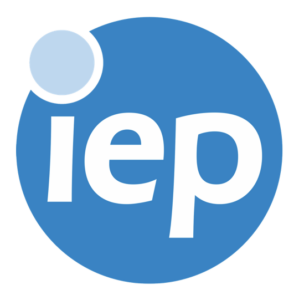IEP Award in Mentoring for Employability
Who is this Program for?
- Frontline Practitioners.
- First-line Managers.
Program Overview
The IEP Award in Mentoring for Employability is an IEP Accredited mentoring program specifically designed for the Employability sector. This program offers a specialised pathway to address the lack of mentoring training available to professionals working in the sector. It covers the theories and frameworks of mentoring, structuring mentoring conversations, recognising the balance between listening and offering advice, building trusting relationships, promoting growth and positive change, as well as the differences between coaching and mentoring techniques and when to use each.
The program aims to enable practitioners to develop the knowledge, skills, and behaviours that underpin good practices and ensure high levels of quality standards when working with participants who require higher levels of support to find, achieve, and sustain work. Throughout this qualification, we explore proven methods, models, frameworks, and tools that can be used to help participants increase their motivation and confidence levels, and develop skills and capabilities while reducing ambivalence towards work.
This learning can equip frontline employability practitioners/managers with a comprehensive set of mentoring skills, knowledge, and strategies, enabling them to provide more effective, personalised, and impactful support to mentees throughout their journey towards employment/career progression and personal growth.
On completion of the program, learners will receive an IEP Award in Mentoring for Employability Bronze, Silver or Gold Accreditation Certificate of Achievement and Digital badge, depending on which level of Award they have completed.
For learners who wish to progress further with a formal Level 4 qualification, we recommend including this option. For those who have completed the IEP Award in Mentoring for Employability and want to advance to the next stage of their learning journey, we suggest the Level 4 Careers and Employability Mentoring qualification with The Mentoring School.
Structure and Timings
This is a blended learning program with three levels of accreditation – bronze, silver and gold.
Following completion of the program learners have an option to aim for IEP Post-graduate Accreditation and receive Silver and Gold digital badges.
To achieve Silver, learners will need to evidence the application of different models and theories learnt within a session of learning either as a reflection, observation or with a potential mentee and submit this to the IEP Learning Academy.
To achieve Gold, learners will need to evidence the entire journey with a mentee and report on the outcomes, successes, and challenges.
Total learning time is 4 months, with an additional 1-2 months required for those pursuing Gold Level accreditation to complete their evidence submission and receive assessment feedback.
Learning Delivery and Assessment Method
- 8 fortnightly online social and collaborative sessions of group learning for 8-12 learners with associated activities for Gold and Silver accreditation to help them develop the required skills and embed the learning.
- At the end of each classroom session, learners complete a knowledge check. They are asked questions about the content covered to ensure they have understood and retained the material.
- Silver Accreditation:
- Learners are required to submit one task per week.
- Each task involves a brief description (a few words) to demonstrate how they have applied what they learned.
- Gold Accreditation:
- Learners submit a mini case to demonstrate how they applied their learning in practice.
Subjects Covered
8 x Tutor led social & collaborative online or in-person sessions:
You and your role and coaching & mentoring.
Barriers to learning and learning approaches.
Emotional intelligence and mindsets.
Preparing for the future and good practice.
Individual mentoring and diversity.
Group mentoring and involving others.
Supporting the mentee and mentoring and mental health.
Monitoring the outcomes of mentoring and bringing it all together.
Benefits of Learning
Develop key attributes and skills of an effective mentor
The learning covers the essential qualities of a mentor, such as active listening, empathy, and the ability to provide constructive feedback. Acquiring these skills can enhance practitioners’ ability to build strong, trusting relationships with mentees and provide more effective guidance and support.
Understand and manage complex situations
The learning equips practitioners with strategies to handle conflicts of interest, confidentiality issues, and other challenging situations that may arise during mentoring sessions. This knowledge can help practitioners navigate complex scenarios more confidently and professionally, minimising potential disruptions or setbacks in the mentoring process.
Develop reflective practice
The emphasis on reflective learning encourages practitioners to regularly assess their own approaches, experiences, and personal factors that may influence their mentoring style. This self-awareness can lead to continuous improvement and better-tailored support for each mentee’s unique needs and circumstances.
Involve key stakeholders
The learning highlights the importance of engaging relevant stakeholders, such as family members or support networks, in the mentoring process. This can foster a more collaborative and holistic approach, increasing the chances of successful outcomes for the mentee.
Overcome barriers to learning
By understanding common barriers to learning and strategies to overcome them, practitioners can better identify and address potential obstacles that mentees may face. This knowledge can help them tailor their mentoring approach and provide appropriate support or accommodations to facilitate effective learning and progress.
Utilise different mentoring techniques
The learning exposes practitioners to various mentoring methods and techniques, such as structuring sessions, delivering individual or group interventions, and monitoring outcomes. Having a diverse toolkit of mentoring strategies can enable practitioners to adapt their approach based on the mentee’s needs, goals, and learning styles.
Support mentees with diverse needs
The learning covers aspects of supporting mentees with relationship, emotional, or mental health difficulties. This knowledge can help practitioners recognise when additional support or referrals may be needed and ensure that mentees receive appropriate assistance beyond the scope of mentoring.
Foster a growth mindset
By understanding the impact of mindsets on mentees’ attitudes and progress, practitioners can develop strategies to cultivate a growth mindset. This can empower mentees to embrace challenges, learn from setbacks, and develop a more positive and resilient outlook towards their career and personal development.
Pricing
Award in Mentoring for Employability – Bronze
Award in Mentoring for Employability – Silver
Award in Mentoring for Employability – Gold
Potential discounts for volume, smaller organisations, charities, not-for-profits and self-funders are available. Please contact learning@iemployability.org to discuss.
Unit Rate
£399.00
£449.00
£799.00
Unit Rate (Inc VAT)
£478.80
£538.80
£958.80
.

